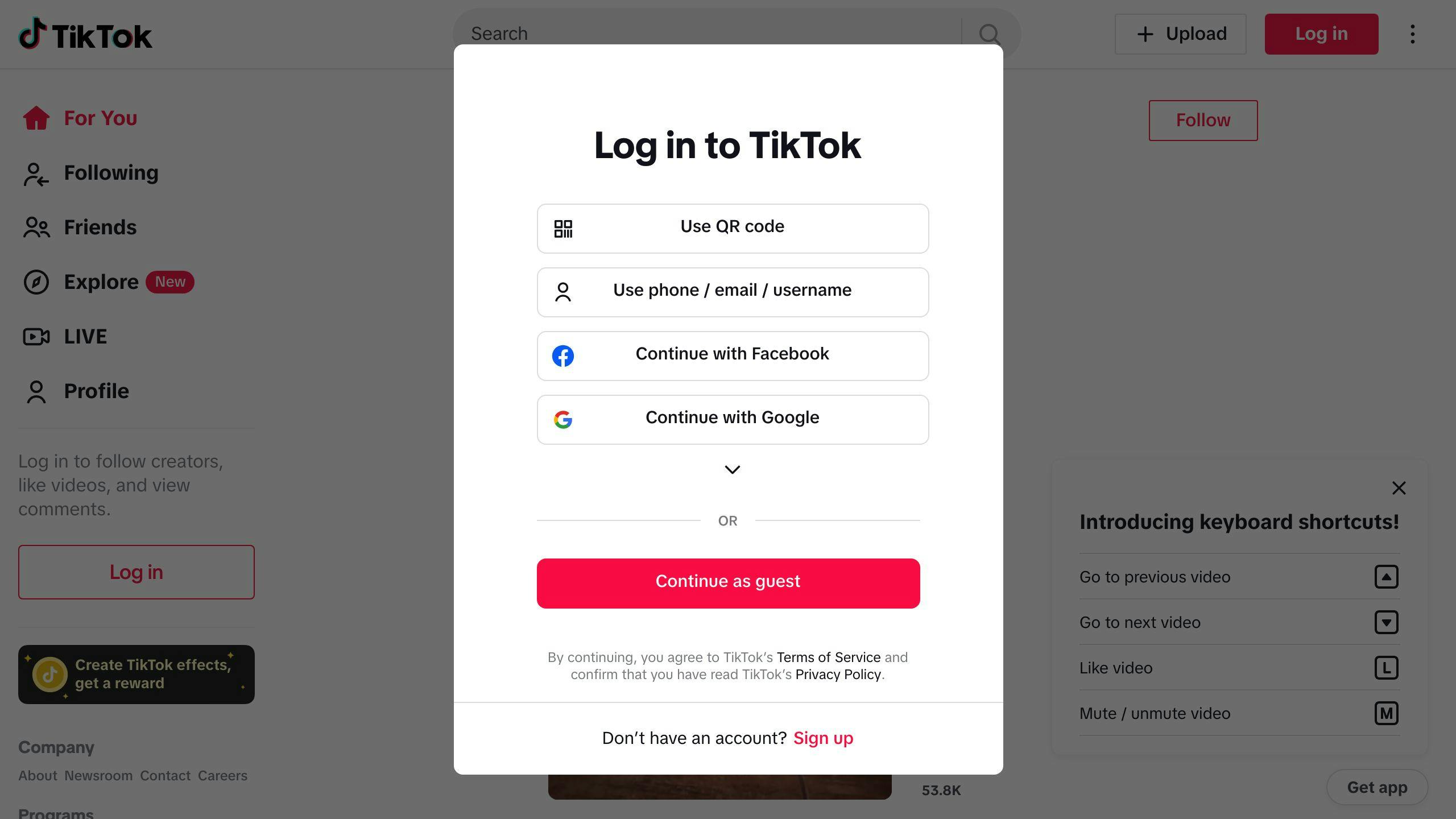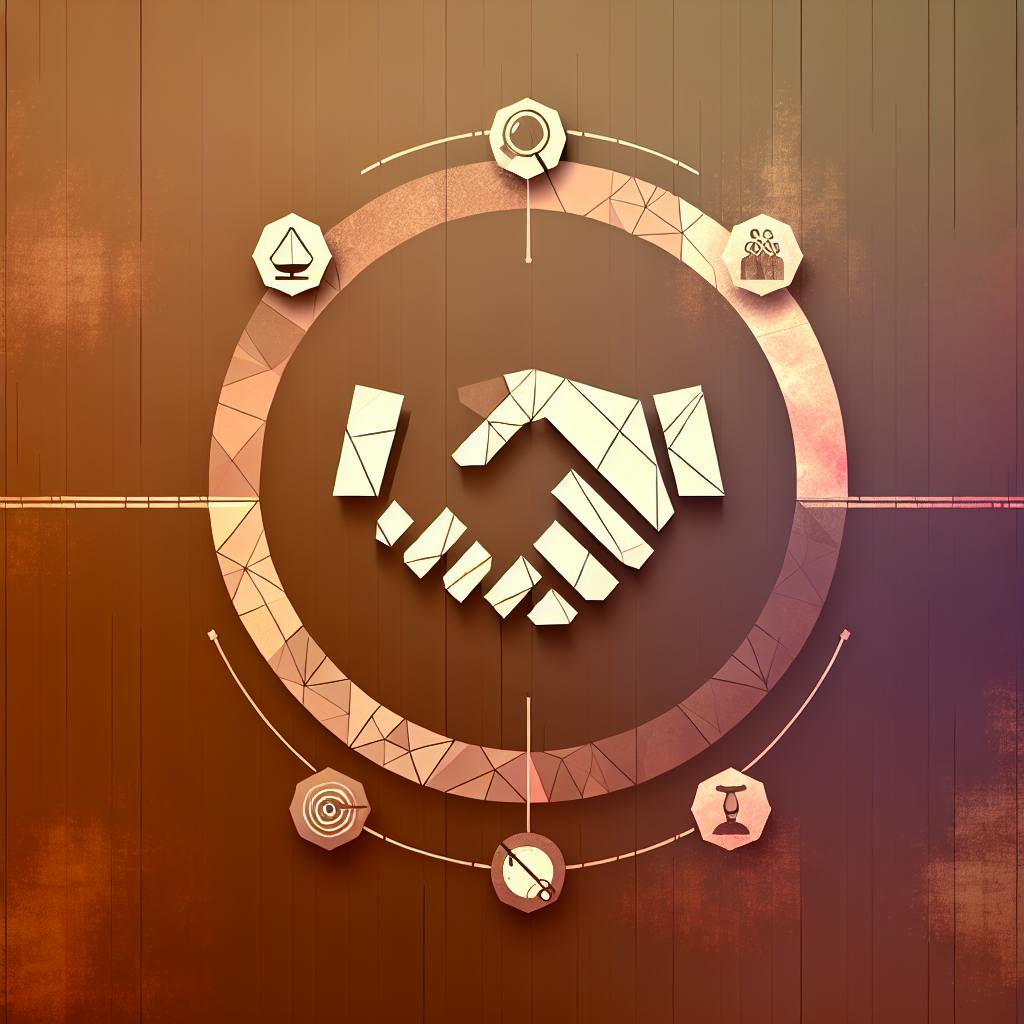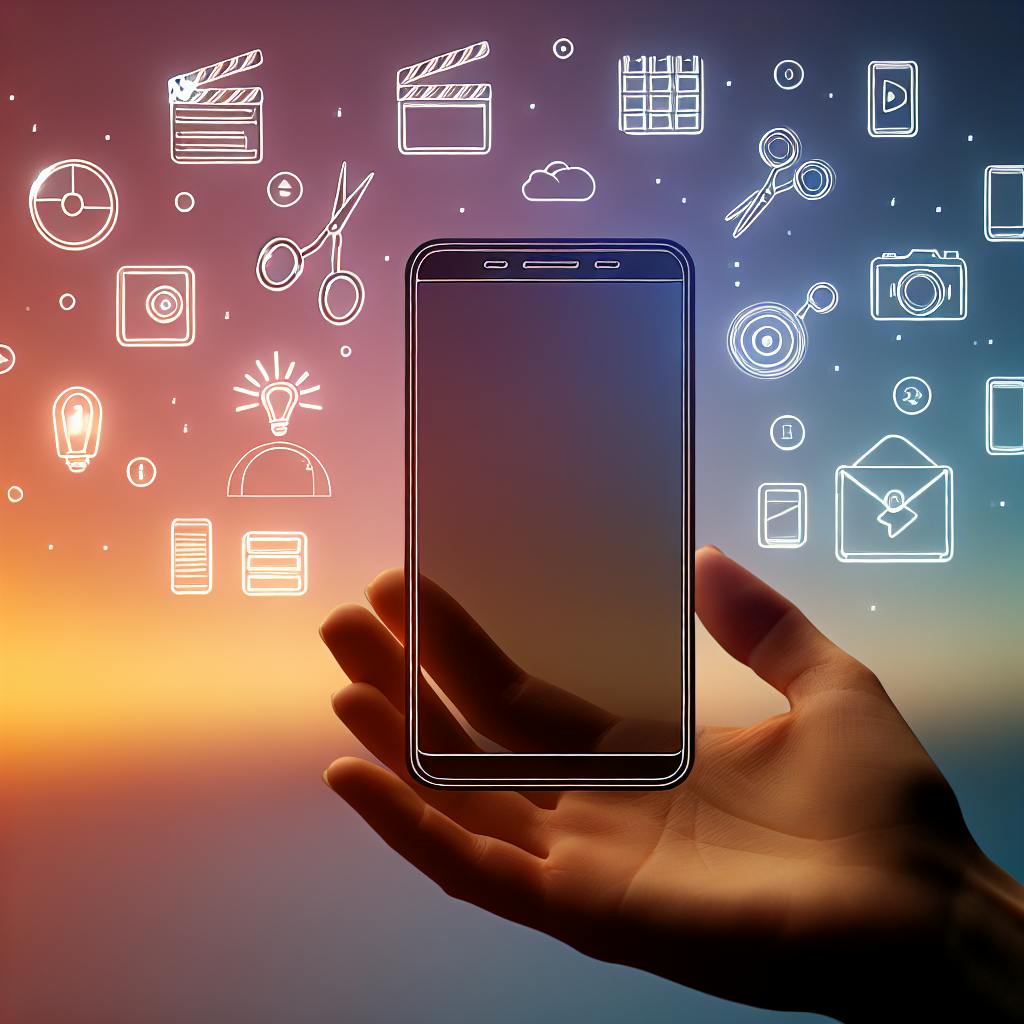The potential TikTok ban in the US would have far-reaching consequences for millions of users, businesses, and influencers who rely on the platform. Here's what could happen:
For Users
- Loss of a popular social media platform and community
- Disruption of social connections and relationships formed on TikTok
- Need to find alternative platforms for content consumption and self-expression
For Businesses
- Loss of revenue and marketing opportunities
- Costly transition to new platforms to reach target audiences
- Disruption of supply chains and partnerships reliant on TikTok
For Influencers
- Significant loss of income and visibility
- Challenges in replicating success on new platforms
- Need to adapt content style and format for different algorithms
| Key Impact Areas | Effects |
|---|---|
| Users | Loss of community, need to find new platforms |
| Businesses | Revenue loss, costly marketing transitions |
| Influencers | Income loss, visibility challenges, content adaptation |
If banned, stakeholders must be prepared to adapt to new platforms and strategies, such as:
- Diversifying online presence across multiple apps
- Building websites or blogs as central content hubs
- Leveraging email marketing and direct audience engagement
- Preserving and transitioning content to alternative platforms
The TikTok ban highlights the importance of being flexible and adaptable in the ever-changing social media landscape.
Why Ban TikTok? Security and Legal Reasons

The US government is considering banning TikTok due to concerns over national security, data privacy, and political pressures. Lawmakers are worried about the app's Chinese ownership and the potential risks it poses to American users.
Security Concerns About TikTok
There are two main security concerns surrounding TikTok:
| Concern | Description |
|---|---|
| Data privacy | The Chinese government could access sensitive user information, such as location data, contacts, and browsing history. |
| Misinformation and propaganda | TikTok's algorithm could be used to spread false information or propaganda, influencing American public opinion. |
Additionally, there are fears that TikTok could be used as a tool for espionage, targeting individuals with access to sensitive information or gathering intelligence on American businesses and government agencies.
Laws That Could Ban TikTok
The Protecting Americans from Foreign Adversary Controlled Applications Act (H.R. 7521) is a bill that aims to ban TikTok in the US. Here's how it would work:
| Step | Description |
|---|---|
| 1. Sale of US operations | ByteDance, TikTok's parent company, would need to sell its US operations within six months. |
| 2. Review and approval | The Committee on Foreign Investment in the United States (CFIUS) would review and approve the sale. |
| 3. Ban enforcement | If a sale is not completed within the timeframe, TikTok would be banned in the US, and Apple and Google would remove the app from their app stores. |
The legal framework for the ban is still evolving, but the US government is taking a strong stance against TikTok, citing national security concerns as the primary motivation.
sbb-itb-bc761f5
How a TikTok Ban Affects Key Groups
A potential TikTok ban in the US would have significant consequences for various groups, including businesses, influencers, and users.
Effects on Business and E-Commerce
A TikTok ban would hurt businesses that rely on the platform for marketing and revenue generation. Many companies, especially small and medium-sized enterprises, have come to depend on TikTok's massive user base and affordable advertising options. Without TikTok, these businesses would need to find alternative platforms to reach their target audience, which could be a costly and time-consuming process.
| Category | Impact |
|---|---|
| Small and medium businesses | Loss of revenue and marketing opportunities |
| Influencers and creators | Loss of income and visibility |
| Users | Loss of a community and platform for self-expression |
According to a report, TikTok generated $14.7 billion for small and medium businesses in 2023, and a further $24.2 billion in total economic activity. A ban would not only affect these businesses but also the entire ecosystem of creators, influencers, and suppliers who work with them.
Impact on Influencer Careers and Income
Influencers who have built their careers on TikTok would face a significant loss of income and visibility. Many influencers rely on TikTok's algorithm to reach a massive audience, and a ban would force them to pivot to other platforms, which might not offer the same level of engagement and monetization opportunities.
Loss of Community for Users
For users, a TikTok ban would mean the loss of a community and a platform that has become an integral part of their daily lives. TikTok has enabled users to connect with others who share similar interests, passions, and identities. The app has also provided a space for self-expression, creativity, and entertainment.
A ban would not only deprive users of a popular social media platform but also disrupt the social connections and relationships they have formed on TikTok. Users would need to find alternative platforms to connect with others, which could be a challenging and potentially isolating experience.
In the next section, we'll explore the potential alternatives and strategies that could emerge in the wake of a TikTok ban.
Life After TikTok: New Platforms and Strategies
If TikTok gets banned in the US, it's essential to have a plan in place to adapt to new platforms and strategies. This section will provide a roadmap for those affected by the ban to find new opportunities and platforms for content creation, marketing, and community engagement.
Alternative Apps for Content and Connection
Several alternative apps can fill the void left by TikTok. Here are some popular options:
| App | Description |
|---|---|
| Instagram Reels | A short-form video feature within Instagram, offering similar functionality to TikTok. |
| YouTube Shorts | A short-form video feature within YouTube, allowing creators to produce bite-sized content. |
| Triller | A music-focused video app that has attracted many TikTok stars, offering a similar user interface and features. |
| Likee | A global short-form video platform with over 150 million active users, offering a wide range of music and effects. |
Strategies for Creators and Brands
To thrive in a post-TikTok world, creators and brands need to diversify their online presence and build followings across multiple platforms. Here are some strategies to consider:
-
Cross-promote content: Share content across multiple platforms to reach a broader audience.
-
Build a website or blog: Establish a central hub for your brand or content, allowing users to find and engage with you directly.
-
Leverage email marketing: Build an email list and send regular newsletters to stay in touch with your audience.
-
Engage with your audience: Respond to comments, engage in conversations, and build relationships with your followers.
Preserving and Moving Content
If TikTok gets banned, users and creators will need to back up their content and transition their followers to new platforms. Here are some tips to help with the process:
-
Download your TikTok content: Use third-party apps or TikTok's built-in feature to download your videos and save them locally.
-
Transfer your followers: Share your new platform handles on TikTok and encourage your followers to join you on other platforms.
-
Re-upload your content: Share your downloaded content on new platforms, ensuring consistency and continuity.
By taking these steps, users and creators can preserve their content and maintain their online presence even if TikTok is banned.
Global Lessons from TikTok Bans
India's TikTok Ban: A Case Study
In June 2020, India banned TikTok and over 200 other Chinese apps due to privacy concerns and national security issues following a military clash with China. With over 200 million Indian users, TikTok's exit left a massive void in the short-video market.
Within months, platforms like Instagram Reels and YouTube Shorts emerged to fill the gap, mimicking TikTok's short-form video creation features. These alternatives quickly captured a significant portion of TikTok's vacated user base.
| Platform | Growth After TikTok Ban |
|---|---|
| Instagram Reels | Over 20% of time spent on Instagram |
| YouTube Shorts | 1.5 billion monthly logged-in users |
While the ban disrupted the careers of many Indian content creators and influencers, most adapted by shifting to alternative platforms. Some struggled to regain their previous audience levels, while others found success on new platforms like Instagram.
"I have built up followers on Instagram too, and I am making money from it, but the experience isn't like how it used to be on TikTok." - Winnie Sangma, Indian TikTok creator
International Privacy Concerns and Precedents
Beyond India, several countries have implemented full or partial bans on TikTok due to data privacy and national security concerns over the app's ties to China. These include:
-
Full Bans: Afghanistan, Iran, Kyrgyzstan, Nepal, and Somalia
-
Partial Bans: Australia, Belgium, Canada, Denmark, European Union, France, Latvia, Netherlands, New Zealand, Norway, Taiwan, United Kingdom, and United States (on government devices)
The common themes driving these bans are fears of user data exposure, potential foreign influence, and the app's Chinese ownership under ByteDance. Many countries remain cautious about the platform's data collection practices and its alleged links to the Chinese government.
As the U.S. inches closer to a potential nationwide TikTok ban, the experiences of other countries like India offer valuable lessons on the impacts, challenges, and opportunities that may arise in the post-TikTok landscape.
Conclusion: The Future of TikTok
The US government's potential ban on TikTok raises important questions about the future of social media. What will happen to the millions of users, businesses, and influencers who rely on the platform?
Lessons from India's TikTok Ban
India banned TikTok in 2020 due to privacy concerns and national security issues. The ban led to a significant shift in the short-video market, with platforms like Instagram Reels and YouTube Shorts emerging to fill the gap.
| Platform | Growth After TikTok Ban |
|---|---|
| Instagram Reels | Over 20% of time spent on Instagram |
| YouTube Shorts | 1.5 billion monthly logged-in users |
Indian content creators and influencers had to adapt to new platforms, with some struggling to regain their previous audience levels. However, many found success on alternative platforms like Instagram.
Preparing for a Post-TikTok World
As the US inches closer to a potential TikTok ban, stakeholders must be prepared to adapt to the changing social media landscape. This means:
- Diversifying online presence across multiple platforms
- Exploring alternative platforms like Instagram Reels, YouTube Shorts, and Triller
- Building a website or blog to establish a central hub for content and engagement
- Engaging with audiences through email marketing and direct conversations
By taking these steps, users, businesses, and influencers can ensure a smooth transition to a post-TikTok world.
The Future of Social Media
The potential TikTok ban highlights the importance of being prepared for changes in the social media landscape. As regulations, technologies, and user preferences evolve, stakeholders must be flexible and adaptable to thrive.
Ultimately, the future of TikTok is uncertain, but one thing is clear: the social media landscape is constantly changing, and we must be prepared to adapt to new challenges and opportunities.
FAQs
What does TikTok ban mean for influencers?
If TikTok gets banned, influencers will face significant challenges. They will need to:
- Find new platforms: Influencers will have to move to other platforms, like Instagram Reels, YouTube Shorts, or Triller, where they may need to grow new followings.
- Adjust their content: They may need to change their content style, tone, and format to fit the new platform, which could lead to a loss of followers or engagement.
- Replicate their success: Influencers may struggle to replicate their success on other platforms, as each platform has its unique features, algorithms, and user demographics.
In summary, a TikTok ban would require influencers to adapt quickly to new platforms and content styles to maintain their online presence and engagement.



